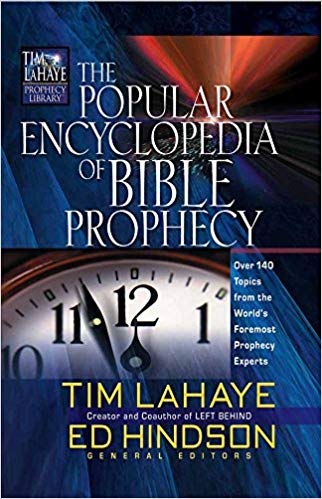ABRAHAMIC COVENANT Part II

THE POPULAR ENCYCLOPEDIA OF BIBLE PROPHECY
ABRAHAMIC COVENANT Part II
THE EXPANSION OF THE ABRAHAMIC
COVENANT
John F. Walvoord (pp. 44–45) summarizes the foundational importance of the Abrahamic covenant in the study of Bible prophecy. He states: “The Abrahamic covenant contributes to the eschatology of Israel by detailing the broad program of God as it affects Abraham’s seed.…It is not too much to say that the exegesis of the Abrahamic covenant and its resulting interpretation is the foundation for the study of prophecy as a whole, not only as relating to Israel, but also for the Gentiles and the church. It is here that the true basis for premillennial interpretation of the Scriptures is
found.”The Abrahamic covenant is important to any discussion of Bible prophecy, for it expresses many unconditional decrees that will be expanded upon in subsequent revelation and thus surely fulfilled in history. This expansion of a biblical theme in the later revelation of Scripture has been called “progressive revelation.” We see this in God’s dealings with the nation and people of Israel throughout the Bible.

The Bible expands upon the three provisions of land, seed, and blessing. (See the chart above.) God enlarges these promises with new covenants: (1) the Land of Israel covenant (Deuteronomy 30:1-10), (2) the Davidic covenant (2 Samuel 7:4-17), and (3) the New Covenant ( Jeremiah 31:31-34).
Land of Israel Covenant
The first expansion of the Land promise came after Abram left Haran and arrived in the Land of Canaan. Genesis 12:7 tells us that the Lord appeared to Abram in Canaan and said, “To your descendants I will give this land.” The context shows that Abram understood the Lord to be referring to the Land of Canaan. The promise was clearly not just for
Abram but for his descendants. God further developed the Land promise
just after Lot, Abram’s nephew, separated from Abram. At this time the Lord said to Abram:“Now lift up your eyes and look from the
place where you are, northward and southward and eastward and westward; for all the land which you see, I will give it to you and
to your descendants forever” (Genesis 13:14-15). Again the promise emphasizes that God gave the Land to Abram and his descendants.
The new element introduced is one of time— it is given forever. Much debate has occurred over this word. Generally its duration is determined
by context. Unless otherwise indicated, it clearly refers to the duration of human history and can include eternity. Genesis 15 provides the record of the actual covenant and describes the boundaries of the Land more precisely: “On that day the Lord made a covenant with Abram, saying, ‘To
your descendants I have given this land, from the river of Egypt as far as the great river, the Euphrates’” (Genesis 15:18 nasb). God promised not only to make Abram the father of a nation but also to provide a homeland for that nation. A nation cannot be a nation without a homeland of its own. Apart from its homeland a people lose their ethnic and national identity. Amazingly, Israel maintained a national identity even after 1800 years
of separation from their national homeland. Deuteronomy 30:1-10 expands this element of the Abrahamic covenant into the Land of Israel covenant (also called the Palestinian covenant). This passage teaches that all the
Land promises that God has made to Israel will be fulfilled “when all of these things have come upon you, the blessing and the curse…
and you return to the Lord your God”(Deuteronomy 30:1-2). God will fulfill this promise for national Israel after the Tribulation in conjunction with the Messiah’s return and the millennial kingdom.
The Davidic Covenant
The second unconditional covenant between God and Israel was made more specifically with David. This is recorded in 2 Samuel 7:10-16. This covenant expands upon the seed provisions of the Abrahamic covenant. The Lord promises to establish David’s kingdom, house, and throne forever.
When your days are complete and you lie down with your fathers, I will raise up your descendant after you, who will come forth from you, and I will establish his kingdom. He shall build a house for My name, and I will establish the throne of his kingdom forever. I will be a father to him and he will be a son to Me; when he commits iniquity, I will rect him with the rod of men and the strokes of the sons of men, but My loving kindness shall not depart from him, as I took it away from Saul, whom I removed from before you. Your house and your kingdom shall endure before Me forever; your throne shall be established forever (2 Samuel 7:12-16). These three words—“kingdom,” “house,”and “throne”—all refer to the political future
of Israel. God has clearly promised in this covenant to make Israel an independent political entity forever. This guarantees Israel’s protection
as a people and eventually as a nation. God will fulfill this promise in the messianic kingdom when the Lord Jesus Christ as the greater Son of David rules from David’s throne. This has not taken place yet but points to Israel’s future as a nation (see Ezekiel 36:1-12; Micah 4:1-5; Zephaniah 3:14-20; Zechariah 14:1-21). To interpret the future for Israel as anything other than a unique, distinct future for God’s special people would be to make
God a liar and a covenant breaker. These promises and prophecies clearly
show that (1) Israel has never possessed all the land God promised, (2) God promised not to change His mind, (3) God recognized that
Israel would be scattered among the nations, (4) God will return them to their Land and reunite them as a nation, and (5) Israel will serve the Lord under the Messiah in the Land in the future. The church has never been scattered among the nations, so we cannot apply to the church the concept of being reunited.Phrases like “their own land” and “the mountains
of Israel” clearly refer to the geography of the Promised Land and not to the church. Further, the context clearly indicates that God was referring to a future for ethnic, political Israel, so to say that God intended to fulfill
these promises in the church would mean that God intentionally deceived Israel. God is faithful and true, so these promises do not apply to the church.

